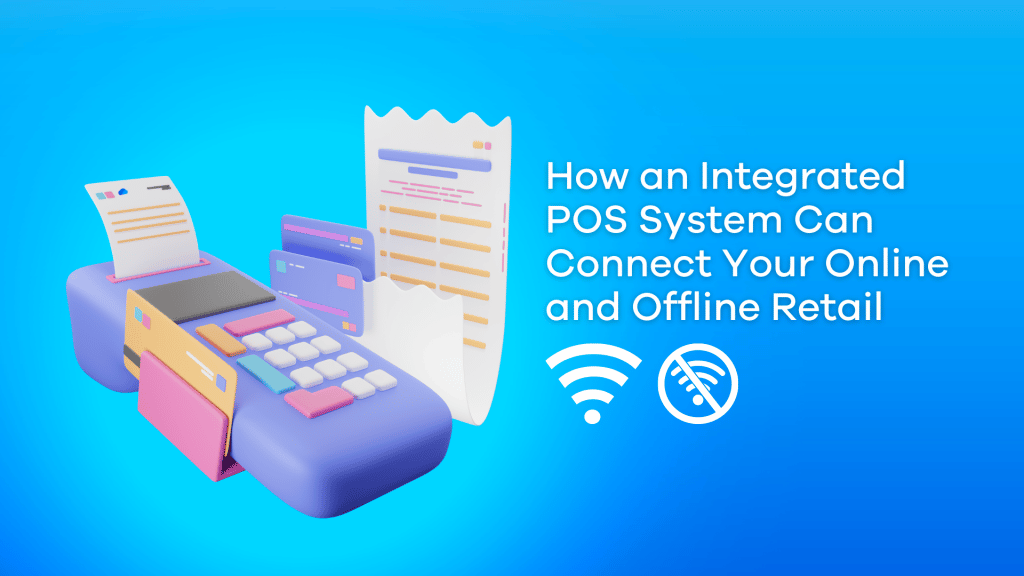
If your retail business relies on both ecommerce and brick-and-mortar sales, you need a POS (point-of-sale) system that allows the two to communicate. An effective integrated POS system combines hardware and software that ensures that crucial information spanning inventory management, payment processing, returns, sales data, and customer service can flow smoothly and in real time between your online and offline channels.
When that POS system integrates with a comprehensive ecommerce growth platform like Descartes Sellercloud, you can unlock even more ways to scale and streamline your omnichannel business.
Choosing the Right POS System for Your Omnichannel Business
POS systems vary in functionality and complexity. Some are designed solely for physical retail, while others are ideal for conducting online sales. For ecommerce businesses with brick-and-mortar components, an integrated POS that can handle both offline and online sales is essential.
Basic POS System Functions
By definition, every point-of-sale system is designed first and foremost to carry out transactions between customers and sellers. This purpose alone includes multiple components that must work seamlessly in tandem:
Product Identification
To get the sales transaction started, each item purchased needs to be identified. This can be done manually by entering a product name or unique identifier into a terminal, scanning a barcode, or referencing products added to a digital shopping cart.
Transaction Management
Once products have been selected and identified for purchase, a POS needs to be able to total prices, assess additional fees (e.g., services, customization options, or fulfillment costs), and apply tax calculations. Applying discounts from coupons, sales, and/or promotional codes also needs to be handled at this stage.
Payment Processing
A POS system must then accept and process the actual payment for the sale. This requires functionality that can accept cash, checks, credit cards, debit cards, and/or online payment gateway services like PayPal or Stripe. This is easily the most important stage of the purchasing process and must be conducted securely and reliably.
Receipt Creation
Once the money has changed hands, a POS must record the transaction for both the customer and the seller. This could be a physical receipt, an email receipt, or an SMS message. Sometimes, a customer may even have the option to forgo a receipt altogether. That said, the purchase still must be recorded on the business side for reporting and accounting purposes.
Additional POS System Functions
While even a barebones POS system can help streamline a retail business’s sales procedures, several additional features are valuable for further boosting efficiency and profitability.
Returns, Exchanges, and Refunds
Most POS systems have some level of refund functionality—if only for correcting incorrect purchase amounts. More robust offerings make it possible to facilitate transactions like product-for-product exchanges, issuance of store credit, and receiving returns.
Inventory Management
Once a transaction is complete, many POS systems have the ability to automatically update business-wide inventory levels to correspond with merchandise that has been sold or returned.
Customer Loyalty Programs
Some POS systems allow customers to use identifiers (e.g., a phone number, loyalty card, or payment method) to connect their purchases to a loyalty or rewards account. This makes it easier for customers to access additional benefits from repeat purchases and can also provide sellers with useful marketing information and customer data to encourage future sales and develop deeper customer retention strategies.
Not all POS systems are created equal. When assessing which is the best fit for your omnichannel needs, you need to be sure that you choose a POS with the full range of functionality to connect and optimize the relationship between your online and physical retail stores. Moreover, opting for a POS system that integrates with your omnichannel ecommerce growth platform takes things to a whole new level of scalability and profitability.

Integrating Your POS System with an Ecommerce Platform Unlocks Additional Efficiencies and Growth Potential
While some POS systems have some ecommerce functionality baked in, omnichannel businesses should seek out options that integrate with a more full-featured ecommerce growth platform like Descartes Sellercloud. The benefits of this type of system-level integration can increase the value of a solid POS system.
To these ends, Descartes Sellercloud supports several of the industry-leading POS systems available today. This means that the useful functionality and information gained from your POS system can benefit your entire omnichannel company.
Of all the ways an integrated POS system can have a meaningful impact on your retail business, some of the most significant include:
Omnichannel Inventory Management
While many POS services offer some degree of inventory record keeping, a POS system fully integrated into your ecommerce platform provides a reliable way to manage your inventory across every channel you sell—both online and offline. With each sale, you can be sure that your inventory totals are accurate, business-wide.
This is crucial for preventing overselling, limiting out-of-stocks (OOS), and knowing when to reorder and/or relocate inventory to meet customer demand. Furthermore, an integrated POS system opens the door to potential inventory-focused efficiencies, such as fulfilling online orders from brick-and-mortar locations and restocking stores from your ecommerce warehouse.
Synergized Offline and Online Customer Experiences
A POS system can be the key to bridging the gap between your online stores and your brick-and-mortar locations. This could include fulfillment conveniences like BOPIS (buy online, pick up in store) and BORIS (buy online, return in store).
An integrated POS system can even open the door to allow customers to have in-store purchases that are either too bulky or unavailable at a particular location to be shipped to their homes.
The advantages extend beyond fulfillment. Combining a POS system with an omnichannel growth platform like Descartes Sellercloud can allow you to offer consistent branding and pricing everywhere you sell.
You can also honor customer discounts and loyalty programs that work across your online and physical stores. This level of cross-channel consistency helps establish your brand as a truly omnichannel experience.
Deepened Marketing Insights
Platform-integrated POS systems allow you to connect customer behavior across physical and digital retail, which has the potential to reveal more meaningful business intelligence data points than if you were only able to examine the two separately.
In particular, the opportunity to gain a deeper understanding of customer shopping intent increases the opportunities for upselling and cross-selling—boosting your average order volume and profitability as a result.
Informed Customer Support
When your online and offline stores are in sync through an integrated POS system, it becomes easier to provide a more unified approach to customer relations and support. The alignment of your digital catalog and the products on store shelves means that responding to customer inquiries and support needs can be more uniform.
Since all of your associates can access and refer to the same product-related information, you can create more consistent and reliable support for your brand and its merchandise. Over the past few years, many retailers have rightfully focused on improving and optimizing their ecommerce offerings and workflows.
The pandemic caused physical sales to take a backseat to online alternatives. However, now that brick-and-mortar retail is once again rising in popularity, you need to be sure that you are finding ways to leverage your digital retail gains to modernize and optimize your physical retail experience.
Combining a quality POS system and an omnichannel growth platform like Descartes Sellercloud is the ticket to this type of hybrid retail success.
Contact us directly for a free demo and see for yourself how the Descartes Sellercloud family of tools and products can bring your omnichannel sales to the next level.




